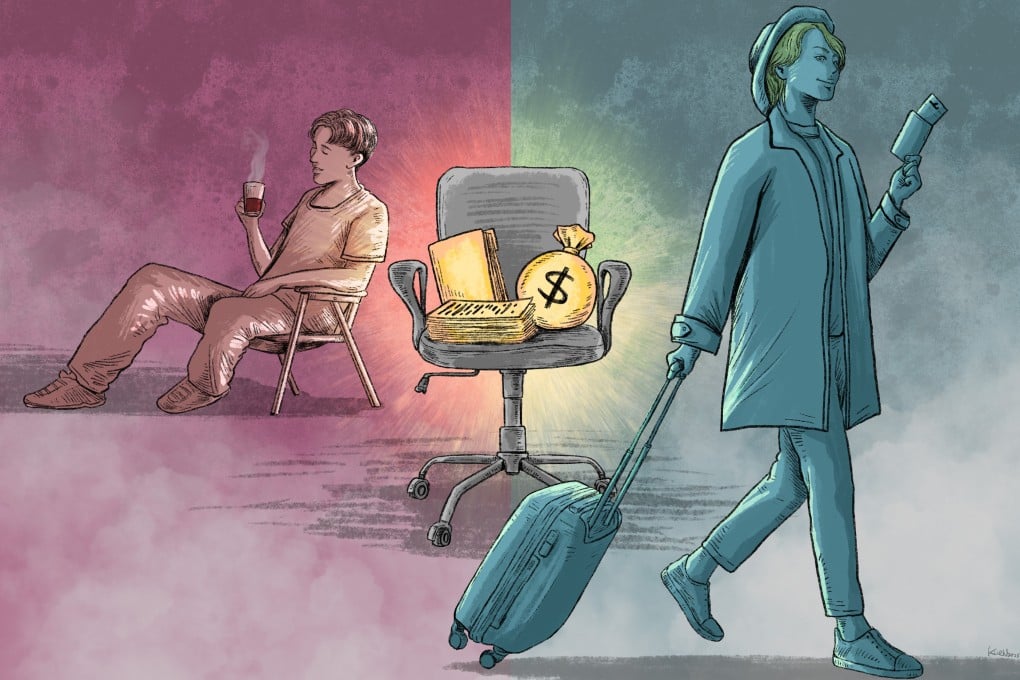Chinese are ‘lying flat’, Americans are on gap years as pessimistic youth take a hard look at traditional jobs
- A growing number of younger people in China are resenting the idea of struggling against economic problems, instead opting to join the so-called lying flat movement
- Millions are also leaning more towards the life side of a work-life balance in the US, with gap years a popular alternative to jumping straight into work after graduating

Pickier, less aggressive workforces are threatening productivity and economic momentum in both of the world’s top economic powers while putting pressure on public welfare, with China’s so-called lying flat movement and gap years in the United States becoming new norms.
“Life is only just so long and I’m in my youth now, so I want to enjoy this beautiful, optimal time,” said 24-year-old Li Jincheng, who identifies with lying flat – striving only for what is essential for survival and focusing on life’s daily pleasures.
Li crunches data for a state-owned telecommunications firm in the southern Chinese city of Guangzhou, rents a flat near his office and looks forward to going out with friends, travelling or studying something on his own out of pure interest.
He plans to live on 10,000 yuan (US$1,455) per month until he turns 30, instead of pursuing a higher paying job that would allow him to buy a home and start a family.
I’m basically, mostly lying flat if you define that as not struggling to move ahead like by working overtime
“I’m basically, mostly lying flat if you define that as not struggling to move ahead like by working overtime,” he said.
Li could work overtime in his company of 3,000 employees to have a shot at getting a promotion plus a pay rise – but there is no guarantee.